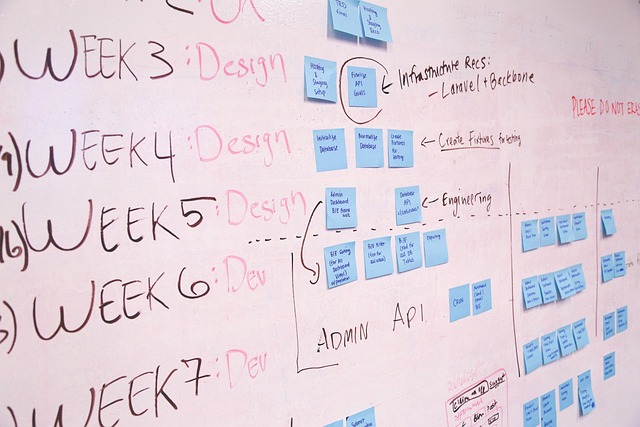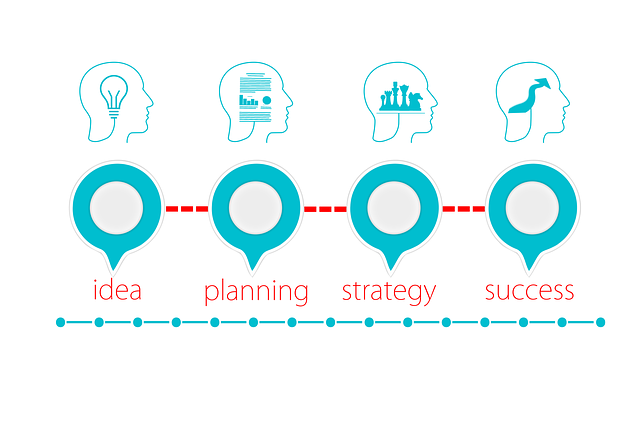In the realm of academic scholarship, professional UK Academic Journals Translation Services play a pivotal role in preserving global accessibility and scholarly integrity. These services collaborate with authors and researchers to navigate linguistic and cultural barriers, ensuring their works are accurately represented worldwide. Skilled translators maintain academic essence through meticulous interpretation, adhering to ethical considerations like copyright and plagiarism prevention. Rigorous quality assurance processes, including peer review, safeguard the authenticity of translated scholarly content. Balancing technology with human expertise is crucial for maintaining high standards in a digital age. Reputable translation services facilitate knowledge exchange by preserving conceptual nuances and cultural context, fostering trust among researchers globally.
In the era of global academic collaboration, ensuring scholarly integrity through translation has never been more critical. This article delves into the intricate challenges facing UK academic journals’ translation services, exploring their impact on research credibility. We examine ethical considerations for translators and best practices for editors, highlighting the pivotal role of language experts in maintaining originality and accuracy. Additionally, we discuss digital tools, present case studies, and outline future trends to safeguard academic integrity across diverse translations.
- Understanding the Impact of Translation on Scholarly Integrity
- Challenges in UK Academic Journals Translation Services
- Ethical Considerations for Translators in Academic Publishing
- Maintaining Originality and Accuracy in Translations
- The Role of Language Experts in Preserving Integrities
- Quality Assurance Processes for Translated Articles
- Best Practices for Academic Journal Editors in Handling Translations
- Digital Tools and Their Effect on Translation Integrity
- Case Studies: Successes and Failures in Scholarly Translation
- Future Trends to Ensure Uncompromised Academic Integrity
Understanding the Impact of Translation on Scholarly Integrity

In the realm of academic scholarship, upholding integrity is paramount, especially when translating research and publications for a global audience. The process of translation can significantly impact the originality and accuracy of scholarly work, particularly in UK Academic Journals. When professional translation services are employed, it becomes a collaborative effort to preserve the author’s intent and ensure the translated content remains true to the original research.
Translation is not merely about substituting words from one language to another; it involves navigating cultural nuances, idiomatic expressions, and conceptual frameworks. Skilled translators in UK Academic Journal translation services understand the importance of conveying not just meaning but also the scholarly essence embedded in the text. They meticulously interpret and adapt the content while respecting the integrity of the academic discourse, thus enabling researchers worldwide to access and contribute to the global academic landscape seamlessly.
Challenges in UK Academic Journals Translation Services

The UK academic journal landscape, while rich in scholarly content, faces unique challenges when it comes to translation services. With an increasing global audience and the need for diverse linguistic expertise, maintaining scholarly integrity in translations has become more complex. One of the primary hurdles is ensuring that translators possess not just linguistic proficiency but also a deep understanding of the specific academic discipline they are translating within. This is crucial as specialized terminology and conceptual nuances must be accurately conveyed to maintain the original meaning and intent of the research.
Additionally, UK Academic Journals Translation Services must navigate ethical considerations, such as copyright issues, plagiarism prevention, and maintaining confidentiality. The academic community expects translations to be accurate, while also preserving the integrity of the author’s work. Therefore, translation agencies working with academic journals need to implement rigorous quality assurance processes, including peer review, to guarantee that translated articles meet the highest standards without compromising authenticity or originality.
Ethical Considerations for Translators in Academic Publishing

In the realm of academic publishing, especially within the context of UK academic journals and translation services, maintaining scholarly integrity is paramount. Translators play a crucial role in facilitating knowledge exchange across linguistic boundaries, making ethical considerations an integral part of their professional responsibilities. They must uphold honesty, transparency, and accuracy in their work to ensure that translated content reflects the original author’s intentions and scientific rigor.
Ethical practices involve obtaining proper permissions for translation, maintaining confidentiality, and avoiding plagiarism or misrepresentation of source material. Translators should also be mindful of cultural nuances, ensuring that concepts are conveyed accurately without losing their essence. This careful navigation is vital to preserving the integrity of academic discourse in a globalized scholarly community, fostering trust among researchers and readers alike, and enhancing the overall credibility of UK academic journals and translation services.
Maintaining Originality and Accuracy in Translations

Maintaining originality and accuracy is paramount in translations, especially for scholarly works intended for publication in UK academic journals. The process involves a meticulous balance between conveying the exact meaning of the source text and adapting it to fit the target language’s natural flow. Professional translation services, often favoured by UK Academic Journals, employ native-speaking translators who not only grasp the nuances of both languages but also understand the scholarly context.
This specialized approach ensures that the translated work retains its intellectual integrity while adhering to grammatical rules and idiomatic expressions of the target language. It involves close attention to details such as terminology, syntax, and cultural references to produce a final product that is not only precise but also readable and impactful, meeting the high standards expected in academic publications.
The Role of Language Experts in Preserving Integrities

Language experts play a pivotal role in preserving the integrity of scholarly translations, especially for publications in UK academic journals. With their deep understanding of both source and target languages, these professionals ensure that nuanced meanings, cultural context, and academic tone are accurately conveyed from one language to another. They carefully navigate the complexities of idiomatic expressions, literary devices, and specialized terminology unique to various disciplines.
UK Academic Journals Translation Services often employ or consult with experts who possess not only linguistic proficiency but also domain knowledge in the specific academic field. This combination allows for precise translations that maintain the integrity of research findings, methodologies, and arguments presented in scholarly works. By upholding these standards, language experts contribute to the global dissemination of knowledge without compromising the original intent and accuracy of academic texts.
Quality Assurance Processes for Translated Articles

Maintaining scholarly integrity is paramount in translations, especially for articles aimed at publication in prestigious UK academic journals. Quality Assurance (QA) processes play a pivotal role in ensuring that translated content accurately conveys the original author’s intent while adhering to rigorous academic standards. Reputable UK Academic Journals Translation Services employ a multi-tiered QA approach.
This typically involves initial translation by professional linguists, followed by thorough review by subject matter experts familiar with the field of study. This double-check system catches nuances lost in translation, verifies factual accuracy, and ensures consistent terminology. Post-editing by native speakers further refines the text, enhancing readability and fluency without compromising scholarly integrity.
Best Practices for Academic Journal Editors in Handling Translations

When managing translations for academic journals, UK publishers and editors play a pivotal role in upholding scholarly integrity. Firstly, they should ensure that only qualified translators with expertise in both the source and target languages are engaged. Professional translation services should be employed, especially when dealing with complex or specialized content from UK Academic Journals Translation Services. This guarantees accuracy and consistency in terminology, which is crucial for maintaining the original meaning and intent of research papers.
Secondly, editors must implement a thorough review process. This involves proofreading not just for linguistic errors but also for conceptual fidelity to the original text. Given the nuances in different languages, it’s essential to have subject-matter experts involved in the review to ensure that technical terms and concepts are accurately translated and contextualized. By adhering to these best practices, UK academic journals can guarantee high-quality translations, preserving scholarly integrity and enhancing accessibility of their content on a global scale.
Digital Tools and Their Effect on Translation Integrity

In today’s digital era, translation services have evolved significantly, introducing a plethora of tools aimed at enhancing efficiency and accuracy. UK academic journals, known for their rigorous standards, are increasingly reliant on advanced software to preserve scholarly integrity in translations. These digital tools offer features like machine translation memory (MTM), which stores previously translated segments, ensuring consistency throughout the text. By leveraging MTM, translators can maintain a high level of accuracy while saving time, thereby preserving the academic integrity of the original content.
However, while digital tools offer immense potential, they also present challenges. Automated translations may sometimes capture nuances incorrectly or omit context-specific expressions. Therefore, human oversight remains crucial to refine machine translations and ensure they convey the intended meaning accurately. UK academic journals must strike a balance between embracing technological advancements and upholding meticulous translation standards to maintain the integrity of scholarly publications across languages.
Case Studies: Successes and Failures in Scholarly Translation

In the realm of scholarly communication, translations play a pivotal role in sharing knowledge across linguistic boundaries. Case studies from UK academic journals offer valuable insights into both successful and failed translation endeavors. One notable success story involves a groundbreaking study on environmental sustainability published in a top UK journal. The translation team meticulously preserved the author’s intended meaning, ensuring that nuanced concepts like “ecological resilience” and “biodiversity hotspots” were accurately conveyed to an international audience. This success underscores the importance of hiring professional translators with expertise in both language and subject matter.
Conversely, a recent failure in scholarly translation involved a medical research paper aiming to describe a novel treatment protocol. The translation, handled by non-specialists, resulted in significant conceptual errors, leading to potential misinterpretation of the treatment’s efficacy and safety. This case highlights the perils of using subpar translation services or ignoring the critical need for subject matter expertise. UK academic journals should prioritize high-quality translations to maintain scholarly integrity and avoid potentially harmful miscommunications that could impact global research progress.
Future Trends to Ensure Uncompromised Academic Integrity

As technology advances, so too do the methods used to preserve scholarly integrity in translations. AI-powered translation tools are becoming increasingly sophisticated, offering improved accuracy and efficiency. However, it’s crucial that UK academic journal publishers remain vigilant against potential plagiarism or misinterpretation. The future of academic integrity lies in combining human expertise with these innovations.
Professional translators, equipped with specialized knowledge in various fields, will continue to play a pivotal role. They can ensure that the nuances and context of scholarly works are accurately conveyed, preventing any loss of meaning or intent. Additionally, implementing robust quality assurance processes, including peer review and fact-checking, is essential. By integrating these future trends, UK academic journal translation services can maintain uncompromising integrity, upholding the reliability and authenticity of scholarly research across languages.
Preserving scholarly integrity in translations is paramount for maintaining the reliability and credibility of academic research. As the demand for global collaboration and knowledge exchange grows, understanding and mitigating the challenges inherent in UK Academic Journals Translation Services becomes crucial. This article has explored various aspects, from ethical considerations to digital tools, highlighting the importance of maintaining originality, accuracy, and quality assurance. By adopting best practices for editors, leveraging language experts, and embracing innovative technologies, academic publishing can ensure that translations uphold rigorous standards, ultimately enriching the global scholarly landscape.
